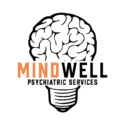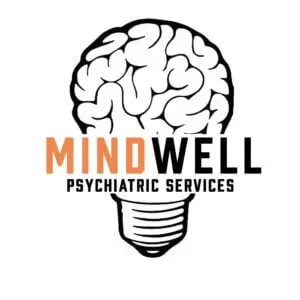Thinking disorders impact how people organize and express their thoughts, often complicating daily communication and tasks. At Mindwell Psychiatric Services, these challenges appear in various forms, such as formal thought disorders frequently associated with schizophrenia. Additionally, bipolar and anxiety disorders might show similar symptoms. For example, during a manic phase of bipolar disorder, a person could experience rapidly flowing thoughts.
To address these challenges, therapies like cognitive behavioral therapy (CBT) are essential. Michael Kuron, MSN, APRN, PMHNP a specialist at Mindwell Psychiatric Services, highlights the advantages of CBT. This therapy works by transforming the way someone thinks, which can improve their feelings and actions. Therefore, recognizing and treating thinking disorders early with the appropriate methods is crucial for better management and recovery. If you or someone you know is dealing with these symptoms, seeking help early is important.
Understanding Types and Symptoms of Thinking Disorders
Types of Thought Disorders
In mental health, different types of thought disorders impact people in unique ways. For example, disorganized thinking is when thoughts seem scattered and don’t follow a clear path. Another type is circumstantial thinking, where a person includes too much detail, which can sidetrack conversations. Recognizing these types can help us understand and manage them better.
Symptoms and Their Causes
The symptoms of thinking disorders vary but commonly include problems with concentrating, organizing thoughts, and keeping a conversation on track. For instance, someone might switch from one topic to another unexpectedly. These symptoms may be due to genetic factors, changes in brain chemistry, or environmental stresses like trauma.
Connection with Other Mental Health Issues
Often, thinking disorders occur with other mental health conditions. For example, schizophrenia, bipolar disorder, and severe anxiety can also show symptoms of thought disorders. So, it’s important to look at the whole picture when diagnosing and treating these conditions. This holistic approach helps ensure that all related issues are addressed.
Recognizing Symptoms of Thinking Disorders
Key Symptoms Explained Simply
One common symptom of thinking disorders is distractible speech. This means a person might start talking about one thing and suddenly switch to an unrelated topic. It can be confusing for both the speaker and the listener. So, if conversations often seem jumbled or hard to follow, it could be a sign of a thinking disorder.
Social Challenges
People with thinking disorders might also experience social anxiety. They often feel nervous or uncomfortable around others because they’re worried about being misunderstood or judged. This anxiety can make social situations very challenging, further isolating the individual.
Therapeutic Approaches
In addition to traditional treatments, therapies like music therapy are used to help manage symptoms. Music therapy can be especially helpful as it allows individuals to express themselves and regain focus in a soothing way. At Mindwell Psychiatric Services, we’ve seen how music therapy can provide a calming influence and help people organize their thoughts more coherently.
Connecting Symptoms with Causes
It’s also vital to look at the causes behind these symptoms. Factors such as genetics, environment, and personal history all play a role. For instance, someone with a family history of mental health disorders might be more prone to develop similar symptoms. Understanding both symptoms and causes helps us create more effective treatment plans.
Causes of Thinking Disorders
Genetic Factors
Genetics play a role in thinking disorders, much like they do in other medical conditions. If family members have had similar issues, it might increase your chances of experiencing them as well. However, genetics is just one piece of the puzzle, interacting with other factors to affect mental health.
Environmental Influences
Our environment significantly impacts our mental well-being. For instance, chronic stress from living in poverty can contribute to the development of thinking disorders. Stress affects the brain’s ability to process information efficiently, leading to disordered thinking. This shows how our surroundings can shape our mental health.
Psychological Triggers
Psychological factors such as trauma or continuous stress can lead to thinking disorders. These experiences can alter our thought processes, sometimes leading to long-term mental health challenges. For example, individuals might develop speech poverty, where they struggle to find words or express thoughts clearly, making communication difficult.
Connection with Other Disorders
Thinking disorders often coexist with other mental health issues, like eating disorders. The stress and anxiety from disordered thinking can manifest in unhealthy eating habits, complicating both conditions. Therefore, understanding this link is crucial for effective treatment.
Enhancement Therapy
To address these complex interactions, we utilize enhancement therapy at Mindwell Psychiatric Services. This therapy focuses on improving cognitive functions affected by thinking disorders, helping individuals better manage their thoughts and improve their quality of life.
Diagnosis Process for Thinking Disorders
Initial Conversation
The diagnosis process begins with an initial assessment with a psychiatrist in Las Vegas, conducts detailed discussions to look for signs such as clang association—where words are picked for their sound rather than their meaning. This can be a clear sign of thinking disorders.
Identifying Symptoms
Next, we closely observe the symptoms. We check for disorganized thinking, which might point to formal thought disorders. These are severe types of thinking disorders where a person’s thoughts are very scattered. We also monitor mood swings that might signal mood disorders, as these can frequently occur alongside thinking disorders.
Using Psychological Tests
To better understand the symptoms and causes of thinking disorders, we use psychological tests. These tests are key to grasping the complex ways thoughts interact in these disorders. They are crucial for an accurate diagnosis and help shape our approach to treatment.
Behavioral and Cognitive Therapy
Another important step is evaluating cognitive functions. We use cognitive behavioral therapy (CBT) and other behavioral therapies not just for treatment but also as diagnostic tools. Through these therapies, we assess how thinking disorders impact day-to-day activities and social interactions, including those affected by social anxiety.
Discussing Treatment Options
Lastly, we discuss treatment options. Treating thought disorders may involve various strategies to manage symptoms effectively. Each treatment plan is customized, integrating therapies that target both the symptoms and the underlying causes of the disorder.
Treatment Options for Thinking Disorders
Comprehensive Therapies
- Cognitive Behavioral Therapy (CBT): Especially useful for those with stress disorders or spectrum disorders, CBT helps patients understand and change the negative thought patterns that lead to emotional and behavioral issues. This therapy is crucial for addressing symptoms like distractible speech and disorder symptoms that disrupt daily life.
- Speech Therapy: Targeted therapy for those experiencing poverty of speech or clang association, where patients struggle to express their thoughts clearly. This treatment focuses on enhancing verbal communication skills, ensuring individuals can express themselves more effectively.
Medication as a Supportive Treatment
In some cases, medication is necessary to manage the biochemical imbalances that contribute to thinking disorders. These medications prescription and management are particularly helpful for stabilizing mood and treating underlying conditions, such as anxiety or mood disorders, which often accompany thinking disorders.
Holistic Treatment Approaches
Adopting a holistic approach involves considering all aspects of a person’s life in the treatment plan.
- Lifestyle Adjustments: Encouraging regular physical activity and a nutritious diet can profoundly affect mental health. For clients with eating disorders, tailored nutritional advice is part of the holistic care provided.
- Stress Reduction Techniques: Mindfulness and other relaxation techniques are vital in managing anxiety and stress, common symptoms in those with thinking disorders. These techniques help reduce the everyday stressors that can exacerbate the condition.
Building a Support Network
Support groups and family therapy play an essential role in treatment by providing a robust support network. These resources are invaluable for emotional support and help enhance understanding among family members and peers, which is crucial for recovery.
Personalized Treatment Plans at Mindwell Psychiatric Services
Tailored Care for Each Patient
At Mindwell Psychiatric Services like Psychiatric Evaluation and Diagnosis, we create treatment plans that are specific to each person. We look closely at each patient’s symptoms and the deeper reasons behind them. This helps us make sure the treatment covers all parts of their health needs.
Understanding Symptoms and Their Causes
It’s important to know both what the symptoms are and why they happen. Some symptoms might be linked to thought disorders or even psychotic disorders. By figuring out these details, we can choose the best way to help.
Focused Treatments for Thought Disorders
We use special treatments for thought disorders. These might include medicine to ease symptoms, therapy to help change thinking patterns, and support for other mental health issues that might be present. We pick each part of the treatment to best suit the patient’s own challenges.
Living with Thinking Disorders
Understanding Your Condition
Firstly, it’s crucial to understand the specifics of your disorder, whether it’s a broad condition like schizophrenia or a targeted issue such as a traumatic brain injury. Knowing the symptoms and causes of your disorder empowers you to manage them better. It helps you and your caregivers tailor your daily routines and treatment plans to better suit your needs.
Daily Management Techniques
Establishing a structured routine can significantly benefit people with thought disorders. A predictable schedule helps reduce confusion and anxiety, making daily tasks more manageable. Also, using organizational tools like calendars and planners can help you keep track of important tasks and appointments, which is especially helpful if memory or organizational difficulties are part of your symptoms.
For tasks that seem overwhelming, breaking them down into smaller steps can be effective. This method allows you to focus on one manageable step at a time, therefore reducing the stress that comes with trying to tackle complex tasks all at once.
Improving Communication
Communicating clearly can sometimes be challenging for those affected by disorders like poverty of speech or if thoughts tend to tangle. Preparing what you want to say in advance can make conversations less stressful. Encouraging your friends and family to learn about your condition also fosters a better support system, as understanding leads to more effective help and empathy.
Ongoing Support and Care
Continuing with regular therapy sessions, such as cognitive behavioral therapy, is vital. This type of therapy helps you develop strategies to cope with disorder symptoms and improves overall mental health. Additionally, joining support groups can offer comfort and understanding, as connecting with others facing similar challenges can diminish feelings of isolation.
Maintaining Overall Health
Maintaining physical health through regular exercise and a balanced diet plays a critical role in managing a thinking disorder. Physical activity is particularly effective at reducing stress and enhancing mood. Furthermore, practices like mindfulness and relaxation exercises can help manage the anxiety and stress that often accompany thinking disorders.
Building a Supportive Environment
At Mindwell Psychiatric Services, we advocate for building a supportive network of family, friends, and healthcare providers. This network is invaluable as it provides both practical help and emotional support.
Conclusion
Thinking disorders encompass a range of mental health conditions that can significantly impact daily life. Symptoms like flight of ideas and circumstantial thinking can be particularly challenging for those with conditions such as schizophrenia and other spectrum disorders. These symptoms often cause individuals to jump quickly from one idea to another or include excessive detail that derails the focus of conversation. Understanding these symptoms and their causes is crucial in managing and treating thinking disorders effectively.
At Mindwell Psychiatric Services, we are dedicated to providing comprehensive care for those dealing with thinking disorders. Psychiatrist in Las Vegas, uses expertise to guide treatment plans that address both the symptoms and underlying causes of mental illness. Treatment options for thought disorders are tailored to each individual’s needs, encompassing a range of therapeutic approaches aimed at reducing the challenges of disorganized thoughts and improving overall mental health. So, if you or someone you know is struggling with these issues, we encourage you to seek professional help. Early intervention can significantly enhance the quality of life and manageability of thinking disorders.
FAQs
What are thinking disorders?
Thinking disorders involve problems with how thoughts are organized and expressed, making communication and daily activities difficult. Common symptoms include disorganized thoughts, difficulty concentrating, and speaking in a disjointed manner.
What causes thinking disorders?
The causes are varied, often involving a mix of genetic, psychological, and environmental factors. Conditions like schizophrenia, traumatic brain injury, and other neurological issues can lead to the development of these disorders.
Who is most at risk for thinking disorders?
Individuals with a family history of mental illness, those who have experienced traumatic events, or those with conditions like schizophrenia or traumatic brain injury are at higher risk.
What are common symptoms of thinking disorders?
Symptoms can include flight of ideas, where thoughts jump rapidly from one idea to another, and clang association, where speech is governed by rhyme rather than reason. These symptoms disrupt effective communication and thought processes.
How are thinking disorders diagnosed?
Diagnosis typically involves psychological evaluations that assess cognitive function, symptoms, and medical history to identify specific thinking impairments.
Can thinking disorders be treated?
Yes, treatments often include medications to manage symptoms, cognitive behavioral therapy to improve thought processes, and family therapy to support both the individual and their loved ones.
How does family therapy help?
Family therapy educates relatives about thinking disorders and provides strategies for better communication and support, helping to create a more understanding and supportive home environment.
What specific treatments are available for people with schizophrenia who have thinking disorders?
For those with schizophrenia, treatment may involve antipsychotic medications and tailored psychotherapy to address both the psychotic symptoms and the specific thinking disturbances.
What support services are available for managing thinking disorders?
Support services may include behavioral health programs that offer therapy and support groups, designed to help individuals manage symptoms and improve their overall quality of life.
What strategies can help individuals cope daily with thinking disorders?
Maintaining a structured routine, using organizational tools, and engaging in regular therapy can greatly assist in managing the challenges associated with thinking disorders.





